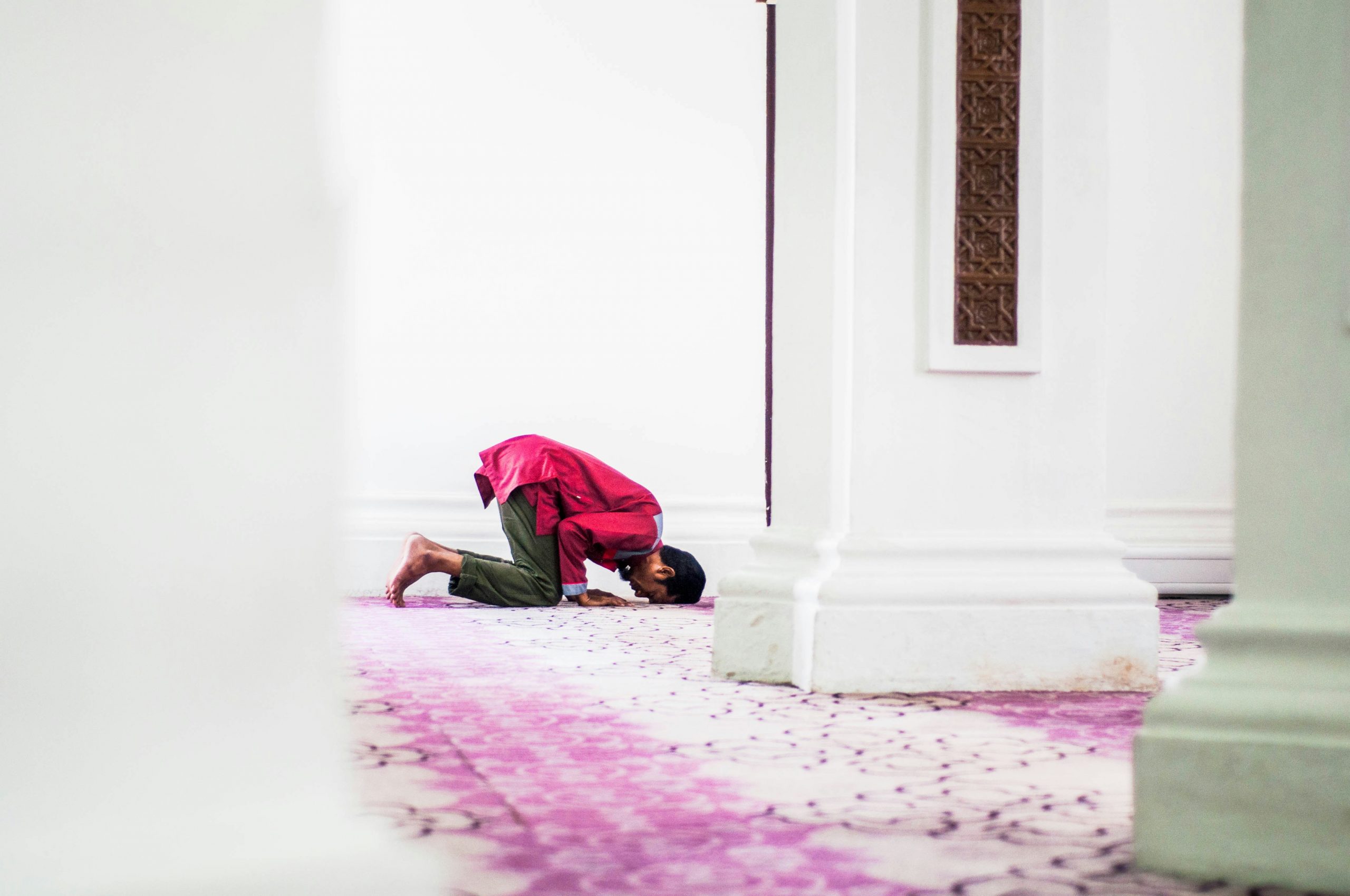“All praise is to Allah. We praise him, we seek His help, His forgiveness, and we seek refuge in Allah from the evil within ourselves and of our actions. Whomsoever Allah guides, none can misguide him. Whomsoever Allah leads astray, none can guide him.
I testify there is no God but Allah alone, without any partners, and that Muhammad, ﷺ, is His servant and messenger.”
Welcome to the Friday Khutbah! A weekly series on the AlMaghrib Journal, based on sermons delivered by our esteemed instructors! We hope you find it beneficial!
Two people may be praying side by side in the same masjid, for the same length of time, behind the same Imam, and yet they can receive vastly different rewards.
The difference isn’t in the prayer itself, it’s in the quality of that prayer. There are multiple ways to increase the reward of the salah you are already performing, and understanding these can transform your daily worship from routine to truly rewarding.
Here are 10 simple ways to maximize the reward in your Salah.
1. Khushu: The Foundation of Rewarding Prayer
First and foremost is al-khushu: having humility, attentiveness, and presence of heart in your prayer. This means you’re actually paying attention and focusing, not mentally somewhere else entirely.
Allah begins Surah Al-Mu’minun by declaring: “Successful indeed are the believers: those who humble themselves in their prayers.” (Quran 23:1-2)
Notice that after describing them as believers, the very first characteristic Allah mentions is their focus in prayer.
The Prophet ﷺ made this stunningly clear in an authentic hadith: “A servant will pray the salah, and the only part that will be recorded for him, the only part he will get reward for, will be one-tenth of the salah.” Then he continued: “One-ninth, one-eighth, one-seventh, one-sixth, one-fifth, one-fourth, one-third, one-half.” (Sunan Abi Dawud, 796; Sunan An-Nasa’i, 1218)
Think about that. Based on how much you focus, that’s how much will be recorded for you. Two people praying right next to each other. One is completely distracted, whilst the other is focused and will receive dramatically different rewards even though they prayed the same length of time.
There’s a shaytan whose specific job is to distract you in salah. Our job is to resist, to bring ourselves back, to focus. The more you focus, the more reward you get.
2. Praying the Sunnah Prayers
Imagine two people coming to pray Dhuhr at the masjid. One prays all the sunnah prayers before leaving; the other doesn’t. It’s easy to see who will have a greater reward.
In Sahih Muslim, the Prophet ﷺ said: “Whoever prays twelve rak’ahs in the day and night, Allah will build for him a house in Paradise.” (Sahih Muslim, 728)
These twelve rak’ahs are not the obligatory prayers, they’re the voluntary sunnah prayers we can easily incorporate:
- Two before Fajr
- Four before Dhuhr (this is the one most people need to add, as many only pray two)
- Two after Dhuhr
- Two after Maghrib
- Two after Isha
We pray most of them anyway! We just need to add those extra two before Dhuhr. Do that consistently, and Allah will build you a palace in Jannah.
3. Praying in Congregation
The difference between praying alone and praying in congregation is staggering.
The Prophet ﷺ said: “The prayer of a man in congregation is more rewarding than his prayer at home or in the marketplace by twenty-five times.” (Sahih al-Bukhari, 647; Sahih Muslim, 650)
Another authentic narration mentions twenty-seven degrees or times greater reward. (Sahih al-Bukhari, 645; Sahih Muslim, 649)
Imam An-Nawawi reconciled these by noting both are authentic, and the difference could be due to different situations and times. Ibn Hajar Al-Asqalani suggested that twenty-five might refer to standard congregational prayer, while twenty-seven accounts for additional factors like arriving early or having more khushu.
The key point: there are levels even within congregational prayer, which brings us to our next point.
4. Arriving Early to the Masjid
There’s a clear difference between someone who arrives ten or fifteen minutes before the iqamah and someone who walks in right as it’s being called.
The Prophet ﷺ said: “If they knew what is in at-tahjeer (coming early to prayer), they would race each other for that.” (Sahih al-Bukhari, 615; Sahih Muslim, 437)
And in another well-known hadith, the Prophet ﷺ told us that when you come to the masjid and wait for salah, you’re rewarded as if you’re in salah the entire time you’re waiting. (Sahih al-Bukhari, 659; Sahih Muslim, 649)
Think about that multiplication of reward: just sitting and waiting counts as if you’re standing and praying.
5. Walking to the Masjid
Every step you take toward the masjid earns you reward.
In Sahih Muslim, the Prophet ﷺ explained: “When you walk to the masjid, one step will erase a sin, and the other step will raise you in rank.” (Sahih Muslim, 666)
Your journey to prayer is itself an act of worship, with every footstep either removing a sin or elevating your status with Allah.
6. Performing Wudu Properly
Wudu isn’t just getting wet. It’s an act of worship in itself that prepares you spiritually for salah.
When you perform wudu slowly and properly, you’re already entering a state of worship. You walk to the masjid calmly, getting yourself in the mode for khushu—as opposed to rushing and running, then suddenly trying to achieve presence of heart in a split second.
The Prophet ﷺ described in Sahih Muslim how sins literally leave your body during wudu: “Your sins will come out and drip out of your body with the water, even from underneath your nails, from every crevice. It’s like your sins are leaving your body because you performed wudu.” (Sahih Muslim, 244)
7. Reciting the Adhkar After Salah
This is often overlooked, but it’s a simple way to earn tremendous reward after every prayer.
The most famous version that everyone knows: Say “SubhanAllah” 33 times, “Alhamdulillah” 33 times, “Allahu Akbar” 33 times, then close it off with “La ilaha illallah wahdahu la sharika lah, lahul mulku wa lahul hamd wa huwa ala kulli shay’in qadeer” once, bringing it to 100. (Sahih Muslim, 597)
But there are other authentic variations:
- 25 times each of “SubhanAllah,” “Alhamdulillah,” “Allahu Akbar,” and “La ilaha illallah”, totaling 100 (Sunan Abi Dawud, 1503)
- 10 times each of “SubhanAllah,” “Alhamdulillah,” and “Allahu Akbar” (Sunan Abi Dawud, 1500; Sunan At-Tirmidhi, 3410)
This last version is what we teach our students in the masjid, and we encourage you to teach your children. At regular speed, it takes less than 25 seconds, and it’s just as authentic as the longer versions. Just less than 25 seconds for a huge reward after every salah!
8. Praying at the Earliest Time
When the Prophet ﷺ was asked, “Which deed is most beloved to Allah?” he replied: “The prayer at its time.” (Sahih al-Bukhari, 527; Sahih Muslim, 85)
Praying as soon as the time enters earns more reward than delaying the prayer, even if you still pray it within its time window.
9. Lengthening Your Recitation, Bowing, and Prostration
Imagine someone who prays in 40 seconds versus someone who prays the same salah in 3 minutes, spending a longer time with Allah, slowing down their recitation, and making longer sujood.
The Prophet ﷺ said: “The closest that a servant will ever be to his Lord is while in prostration, so make abundant supplication.” (Sahih Muslim, 482)
Lengthening your prayer increases your closeness to Allah and multiplies your reward. Take your time in your bowing and prostration; don’t rush through them.
10. Guarding Your Intention
There is not a single deed or action in Islam that isn’t affected by intention. Your intention can increase your reward, decrease it, or even nullify it entirely.
When you pray, your intention must be purely for Allah, not to show off to people, not to be seen at the masjid, not for any worldly reason.
If Shaytan creeps in and tries to make you think about people seeing you at the masjid, stop right then and there and renew your intention. Ask Allah for His forgiveness.
May Allah make us of those who recognize the truth as clear truth and follow the best of it, and make us of those who recognize falsehood as clear falsehood and abstain from it.



Recent Comments